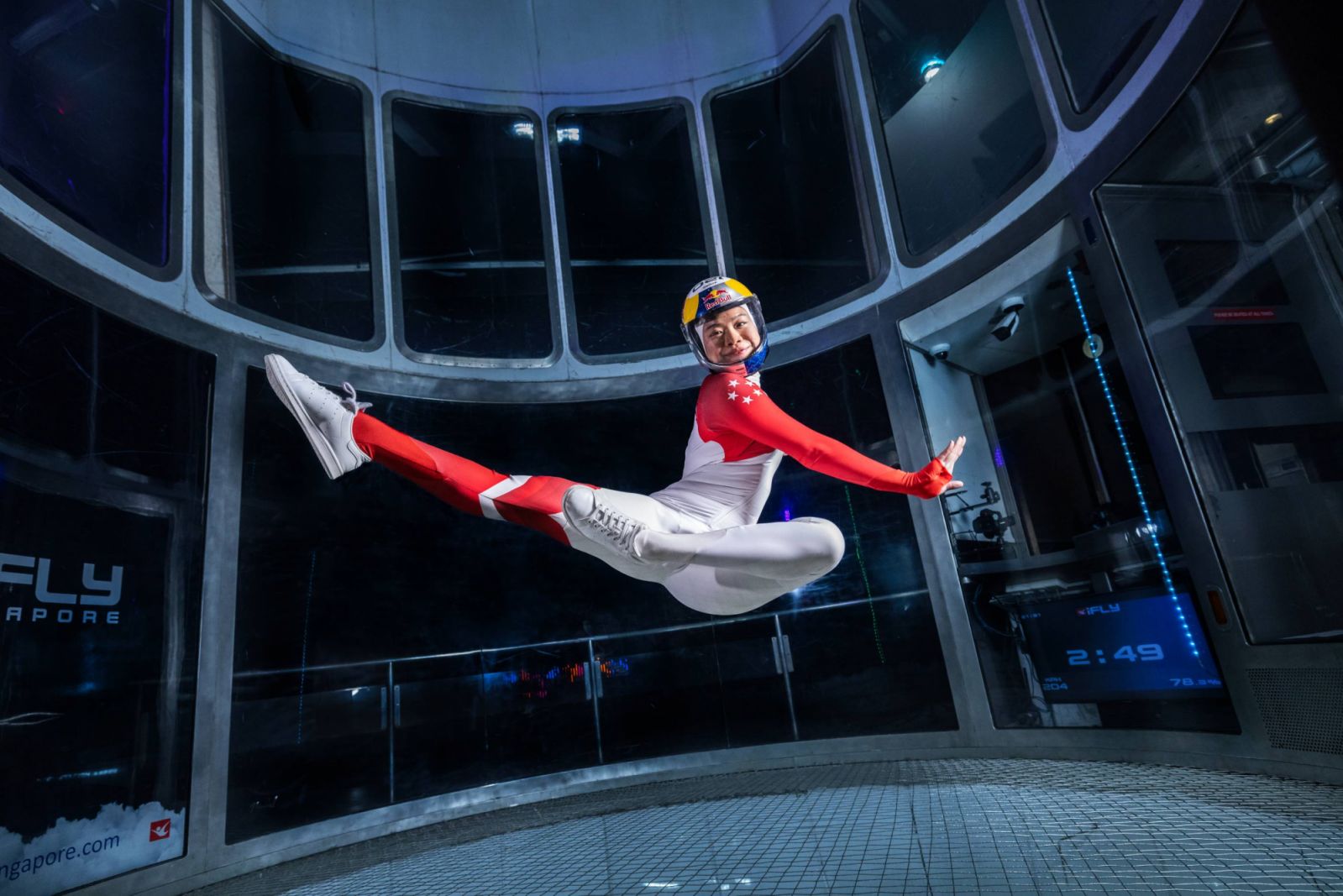The Singaporean indoor skydiving world champion shares how the sport is like being on a rollercoaster you can control and her recent struggles with balancing the passion and pressure to succeed
In the realm of indoor skydiving, one athlete stands out for her prowess to defy both gravity and expectations. Kyra Poh’s name has become synonymous with the sport in Singapore and the world, as she captivates audiences with her agile manoeuvres and claims multiple world championship titles.
She first came to know about the sport at eight years old thanks to her mother, who was working on an advertising campaign for iFly Singapore, an indoor skydiving facility with one of the world’s biggest wind tunnels. Her first big break came in 2016, when she won the junior freestyle category of the Indoor Skydiving World Cup in Warsaw, Poland, at the age of 14.
Poh now holds four Guinness World Records, one of which is for doing the most backward somersaults—68 to be exact—in a wind tunnel in 1 minute. She also achieved the title of “World’s Fastest Flyer” in 2017 when she rode wind at a speed of 230km/h inside a wind tunnel.
Read more: 5 crazy smart insights on self-empowerment, self-love and outer space
The Red Bull athlete mainly splits her time between Singapore and Cergy, France, where she is enrolled in the ESSEC Global Bachelor’s in Business Administration (BBA) programme. Thanks to the dual campus arrangement, Poh can juggle school work with skydiving training while also being an athlete marketing intern at Red Bull’s headquarters in Fuschl, Austria.
We caught up with the literal high flyer to learn more about her love for adrenaline and how she prepares for competitions.

What do you enjoy most about skydiving?
Kyra Poh (KP): I love the feeling of freedom in skydiving. When it’s coupled with the great heights that you can jump from, the adrenaline is addictive. I love that when I am in the sky, I feel like I have more control over my movements than when I am on the ground. I can do things like flips and twists and spins that I can’t do on the ground; it is a form of self-expression. The experience of falling off the plane with a goal in mind is what pushes me mentally and physically.
How would you describe what you feel during a skydive to someone who hasn’t experienced it?
KP: It is the most intense 45 seconds of your life. Everything is intensified. During that short time, we usually have to do tricks and a whole routine, while simultaneously falling through the sky and plummeting towards the ground. Every second requires 110 percent of focus and concentration.
While I feel immense freedom and excitement, I also feel swift and dynamic. At such a fast speed, it is almost like being on a roller coaster, but you are in control of how and what the rollercoaster does. A lot of control is required for such a short time and many factors are thrown in to make it challenging yet exciting and thrilling.
Read more: The Singaporean photographer-influencer touring with Lauv and conquering social media
What motivates you to keep competing and pushing yourself in the sport?
KP: Myself. I know what I am capable of and I want to see how I perform under stressful situations. It is a mental game.
During my jumps, I segregate my thoughts and am fully focused. When I fly, it feels like I’m in a mental and physical flow. When your body works in a flow state, it is one of the best feelings ever.
Could someone afraid of heights be a pro indoor skydiver?
KP: I am sure they could! It would be more difficult, but if they are passionate about it, they can make it work.
I have loved [being at tall] heights and riding rollercoasters since I was a child. When I’m on a rollercoaster, I didn’t enjoy being strapped in because I wanted to feel the rush of adrenaline. I also remember one time as a child, I did five bungee jumps consecutively in a day.

